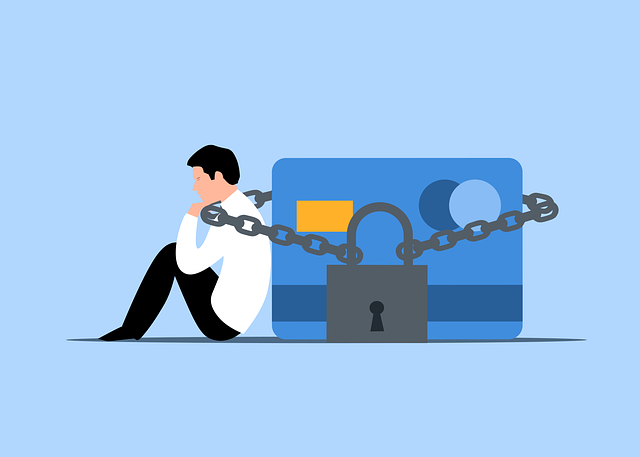Making money is a shared dream that people from diverse backgrounds have in common.
Whether you’re an entrepreneur, an employee, or a student, achieving financial stability and prosperity is a common goal. While it may seem difficult, let’s explore why making money can be challenging. Hopefully, this article can provide practical insights to navigate the financial landscape with a positive outlook.
Barriers to Financial Success in the US
Making money can be a real challenge, and it’s not just about laziness or lack of effort. In the US, there are significant hurdles that can make financial success seem out of reach.
Firstly, the cost of college education is exceptionally high, and it’s not uncommon to find people in their 40s still burdened by student loans.
Moreover, car ownership is often a necessity in the majority cities in the US, but it comes with its own set of expenses, including insurance, maintenance, and registration. When your car breaks down, it can further strain your finances.
The healthcare system in the US is also problematic, dissuading many from pursuing entrepreneurship or starting businesses. Even if you have employer-provided coverage, it may not be comprehensive, and you could still face substantial deductibles.
Essentially, in the US, you bear a heavy financial burden, especially in your 20s, as you juggle higher living costs, student loans, car payments, and healthcare expenses. The reality is, if your family isn’t assisting you, it’s tough to set yourself up for success.
Moreover, starting a family can be costly generally, but childcare in the US is expensive. This sometimes forces families to choose whether it makes sense for one of the spouses to quit their job to avoid costly childcare, which can also hinder their career advancement.
All of these challenges can make it incredibly tough to get ahead financially. This doesn’t eliminate our responsibility to keep taking action, but it’s worth mentioning that some people have a greater likelihood of making substantial income

Economic Inequality
One reason making money might seem challenging is the presence of economic inequality. In many societies, a small portion of the population controls a significant wealth, making it feel like opportunities are scarce. This inequality often results from factors like inheritance, access to education, and socioeconomic backgrounds.
For instance, students born into financially secure families may have easier access to quality education, which can open doors to higher-paying jobs or entrepreneurial opportunities. Meanwhile, those born into poverty face significant obstacles in accessing education and may be limited to lower-paying jobs or remain in a cycle of economic hardship.
Another example is a significant discrepancy in wage gaps. Wage gaps between different job sectors can contribute to economic inequality. For instance, jobs in the service industry, like retail or fast food, often pay lower wages than jobs in technology or finance, which typically offer higher salaries.
To mitigate this challenge, governments, organizations, and individuals must work collectively to create a more equitable distribution of resources and opportunities. Policies that promote affordable education, social safety nets, and fair wages can help bridge the wealth gap and make it easier for everyone to make money.

Lack of Financial Literacy
Lack of financial knowledge can be a barrier to making money. Many people haven’t learned how to handle money, invest wisely, or deal with financial systems. Without these skills, individuals may struggle with debt or miss out on opportunities.
Also, many people spend more money than they have, causing big problems. I made money mistakes in my 20s and 30s too. Money can make life easier, but not having enough can make life so difficult.
Financial education is crucial in addressing this issue. Schools, communities, and employers should prioritize teaching budgeting, saving, investing, managing debt and even negotiating your salary.
With this knowledge, people can make smart money choices and work toward their financial goals. For example, if I had started saving and investing five years earlier, my money could have doubled because of a strong stock market.
One step you can take today is to start educating yourself about personal finances. Learning about helpful money habits, savings money, and cutting expenses are good starting points.
Starting early is essential. When you start saving and investing early, your money has more time to grow because of compound interest. Even small, regular contributions can turn into significant savings, making it easier to achieve financial goals.
It’s important to remember that while saving is crucial, we should also aim for a balance between enjoying the present and preparing for the future. It doesn’t make sense to save a lot of money for the future if it makes us unhappy in the present.
Related post:

High cost of living
The cost of living in many parts of the world has steadily risen, making it increasingly challenging to make money. Expenses such as housing, healthcare, education, and transportation can consume a significant portion of an individual’s income, leaving little room for savings or investment.
In 1980, the typical house cost $47,000, and the average income was $21,000. But if we jump ahead nearly 30 years, the average house price is ten times higher, while the average income has only increased four times. It’s hard to believe, right?
To tackle this problem, adopting a frugal lifestyle is essential, living below your means, prioritizing needs over wants, and seeking cost-effective alternatives whenever possible. Savings and cutting your expenses would be a significant first step; however, increasing your income would be even better.
Additionally, exploring opportunities for remote work or relocating to areas with a lower cost of living a.k.a geoarbitrage can help individuals make their money go further.

Limited Job Opportunities
The availability of job opportunities can vary greatly depending on one’s location, skills, and qualifications. In some regions, job markets may be oversaturated with qualified candidates, making it difficult to secure stable employment. In contrast, other areas may suffer from a lack of job opportunities altogether.
Numerous software engineers and IT professionals often relocate to major cities like San Francisco for improved career prospects and higher salaries. This move can particularly benefit young professionals as they have more room to manage living expenses effectively while enjoying significantly higher earnings. Even then, if the unemployment laws are not very strong, your employer can kick you out suddenly and quickly.
To address this, build strong network and stay open to different career paths. Being ready to acquire new skills or switch industries can be very beneficial.
It’s interesting that sometimes, learning a new skill or two can help you make more money and become more competitive. For example, I’ve seen people who used to work in sales or operations switch to analytics and earn a lot more, sometimes even six-figure incomes (or even more in tech or fintech industries). All they have to learn is data visualization and, occasionally, SQL programming.
Sometimes, the way to find a new job isn’t very clear. You can use this helpful LinkedIn tool to see common career paths.
Also, building a strong professional network and finding a mentor is a good idea. You could attend local meetups or have a coffee with someone in your company who has the job you want.
Related article:
Inflation and Economic Factors
Inflation, the rise in the general price level of goods and services over time, can erode the purchasing power of money. When inflation outpaces income growth, individuals may find it challenging to make money that maintains its value.
To counter the effects of inflation, you could consider investing in assets that historically outperform inflation, such as stocks and real estate. Diversifying one’s investment portfolio can help protect against the erosive impact of inflation on wealth.
Making Money as an Entrepreneur or Business Owner Is Challenging
Social media often suggests that traditional 9-5 jobs are less appealing. However, starting your own business demands more than 40 hours a week, especially in the initial years.
When you’re employed, your role is typically well-defined, but as a business owner, you must handle marketing, operations, finances, and product supply, which can be challenging.
Even in popular and lucrative fields like content creation, you’d need to create content consistently.
Here are some reasons why is it so difficult to make money as an entrepreneur
Marketing
However, unless your app is truly unique and addresses a significant need, it’s unlikely to gain recognition. Major companies understand this and invest heavily in marketing.
You can start marketing your app by using platforms like LinkedIn, Facebook, and Instagram. Share your product with friends, create content (consider Instagram Reels and TikTok for short videos), and write articles on platforms like Medium. If you have a marketing budget, Google ads might be an option.
Product Market Fit
Marketing isn’t the only challenge; it begins even earlier. You must determine if people want your product and identify your target audience. This involves extensive research into user preferences, market dynamics, and potential use cases—a role usually handled by a product manager in traditional tech companies. Once you have a clear plan, developers can work on building the product.
Patience
Most people don’t have the patience to wait and to keep their heads down to put in the effort. Most content creators and business owners probably need to invest at least a year before seeing any dollars coming in.
Think about bloggers and YouTubers who are doing great now; they had to spend years building up their online presence before they started making money from it.
For example, I didn’t start making money from part-time blogging until my fourth year. I have my full-time job and personally, I think it’s better to keep your full-time job until your business takes off.
Luck
People also often don’t talk about luck. But luck plays a big role. Think about it, there are plenty of online content creators who keep posting online, but maybe only a small percentages who go viral and start accumulating subscribers. Looks and your personality also play a role here, which is something you cannot control.
I’m not saying that being online creators is not worth it, it can be very well be. However, it takes a lot of persistences, consistencies, and a bit of luck.
For instance, if you aim to be a content creator, keep making quality content posts regularly, and all of these efforts will increase your chance that the algorithm will pick your video. Be ready if your video doesn’t go viral.
Multiple Income Sources
If one income source doesn’t work, try others. There are various ways to make money online. In blogging, for instance, you can:
- Write ebooks
- Sell printables
- Host sponsored podcasts (if you do a podcast)
- Use affiliate marketing
- Offer online courses
- Engage in speaking gigs
- Display ads
Fear of Judgement
People are afraid of being judged. I’m not an exception. If you are afraid to show your face, which many people are, that’s normal.
However, recently, I have started to think differently; here is my favorite quote:
“People are going to judge you anyway, so you might as well do what you want” – Taylor Swift. Yes, I’m a swiftie, too!
People generally focus on themselves rather than thinking about you. I bet many of you reading this article will go about your day thinking about your own concerns after closing this article.
Besides, in 60 years, most people won’t likely remember you. So, we really don’t have much to lose.
Fear of Failure
The fear of failure can hold you back from making money. Many individuals fear taking risks, starting their businesses, or investing because they fear the consequences of failure. Or you are afraid because all the efforts you put down will go waste.
To overcome this, consider the downside of not giving it a shot.
In the words of hockey legend Wayne Gretzky, “If you miss 100% the shots you don’t take”
Remember, attempting and falling short is often better than not attempting at all. At the end of the day, you can say to yourself “at least I tried”.
Be afraid, but do it anyway. Your fear might stick around, and that’s alright. That doesn’t mean you have to let it control you.
Be courageous. The worst thing that can happen is you don’t get what you want, but you can always tell yourself that at least you tried.
Lack of Capital
Starting a business or making investments often requires capital, which is a hurdle for many people.
Consider working for a few years to build your capital, or maybe borrow from friends or family if necessary.
The truth is large capital isn’t always necessary to start a business. You might want to consider bootstrapping approach.
Here is an example:
Imagine you are passionate about crafting unique, handmade jewelry and want to turn it into a business. You have limited business experience and a modest amount of personal savings.
Bootstrapping Approach
In this scenario, you decide to start small. You use your personal savings to purchase basic jewelry-making supplies and create a small inventory. You set up an online store on a platform like Etsy, which has low initial costs.
You also use free or low-cost social media platforms to market your products. As you make sales, you reinvest the profits into buying more supplies and expanding your product range.
Over time, your business grows gradually, and you learn valuable lessons along the way. If, for some reason, your jewelry business doesn’t succeed as expected, you won’t have incurred significant debt, and you can explore other opportunities.
Taking Loans Approach
On the other hand, you could choose to borrow a bunch of money to start your jewelry business on a bigger scale. You rent a fancy shop, buy expensive equipment, and hire people to help you make and sell your jewelry.
You might spend a lot on advertising and branding, too. This approach seems ambitious, but it’s risky, especially since you’re new to this. If your jewelry business doesn’t make enough money to pay for everything and pay back the loan, you could end up with a lot of debt that’s hard to deal with.
So, starting small with your own money (bootstrapping) lets you test your business idea without taking on too much risk. If it works, you can grow slowly and get more money as you need it. Going for a big loan without enough experience can lead to financial trouble and might not be the best way to start your business journey.
Procrastination and Lack of Discipline
I am guilty of this. I tend to get bored easily and then, procrastinate.
I’m probably not the only one. Many people delay taking action on their financial goals, whether it’s starting a side business, saving for the future, or investing.
But actually, procrastination is more an emotional problem than a time management issue. It isn’t simply about laziness but is a way of coping with challenging emotions like boredom, anxiety, and self-doubt.
When we procrastinate, we know it’s not a good idea, but we do it anyway. It happens because we prioritize short-term relief over long-term goals, often seeing future tasks as someone else’s problem.
To address procrastination, we need to understand it’s about our emotions, not just productivity.
Here are a few things you can try to reduce this problem:
Be curious
Pay attention to how you feel when you want to procrastinate. Where do you feel it in your body? Does the feeling change as you focus on it?
Thinking about the next step
Instead of thinking about the entire task, consider the very next thing you’d do if you were going to start. This can help ease your nerves and get you going. For instance, when procrastinating on this blog, I’d only focus on one paragraph. This is often enough to push me to keep writing, at least in the next hour.
Make temptation harder
Put obstacles between you and your procrastination triggers. For example, remove social media apps or use complex passwords. This makes procrastination less convenient.
Make good habits easier
If you want to do something, make it as easy as possible. For instance, if you want to exercise in the morning, sleep in your workout clothes to remove obstacles.
Find mentor/accountability partner
Consider finding an accountability partner or mentor to help you stay on track and motivated to pursue your money-making endeavors.
Remember, procrastination is a common challenge we all struggle with it.
It’s about finding strategies that work for you to make better choices, whether it’s to make more money and/or be happier with how you spend your time.

Vi, a software engineer with a keen interest in personal finance, had planned to retire once she reached her lean FI/RE (Financial Independence/Retire Early) goal. However, after achieving the goal, she took few months of a mini-retirement filled with travel and adventure and decided to continue her career.
For the past five years, Vi has been using Personal Capital (Empower), a free financial tool. Her favorite features include the dashboard for net worth, allocation, and planning, which help track her FI/RE goal and keep those investment fees in check.
